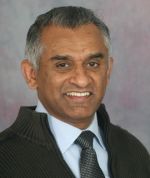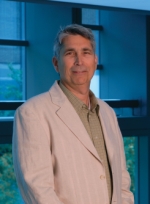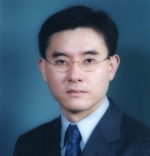Keynote Speakers
We are very pleased to have acquired the services of an excellent selection of keynote speakers for KES2009. The speakers and the titles of their talks are shown below.
John Oommen
Carleton University, Ottawa, CanadaLearning Automata-Bases Intelligent Tutorial-Like Systems
More details ...
Barry G. Silverman
University of Pennsylvania, Philadelphia, USAModeling & Simulating Empires: Toward a Game World Generator
More details ...
In-Young Ko
Korea Advanced Institute of Science and TechnologyUser-centric and Intelligent Service Composition in Ubiquitous Computing Environments
More details ...
Claudio A. Pérez Flores
Electrical Engineering Department, University of Chile, ChileBiometrics and intelligent video surveillance: detection, tracking and identification
More details ...
Hugo Scolnik
Computer Sciences Department, University of Buenos Aires, ArgentinaNew methods for processing huge amount of data from linear systems
More details ...
Richard Weber
Department of Industrial Engineering, University of Chile, ChileDynamic Data Mining - Recent Developments and Future Challenges
More details ...
Abstracts and Biographies
John Oommen
Carleton University, Ottawa, CanadaLearning Automata-Bases Intelligent Tutorial-Like Systems
Abstract:
The aim of this pioneering research is to study, design, and implement systems that could tutor other sub-systems using techniques that traditional real-life Teachers use when they teach real-life Students. The research undertaken is a result of merging the fields of Intelligent Tutoring Systems (ITS) and Learning Automata (LA), and leads to a paradigm referred to as Intelligent Tutorial-like systems. In our proposed novel approach, every component incorporates the fundamental principles of LA. Thus, we model the Student (i.e., the learning mechanism) using an LA, and a Classroom of Students, in which each of them is individually represented by a distinct (and possibly different) LA. We also model the Domain and the Teacher using LA paradigms. Our research also works within a new philosophical perspective. We relax the constraint that "traditional" Tutorial systems have, namely that of assuming that the Teacher is infallible. Rather, we assume that the Teacher is inherently uncertain of the domain knowledge, and is thus of a stochastic nature. However, although he is not absolutely certain about the material being taught, he is also capable of improving his own "teaching skills" even while the operation of the system proceeds. Finally, we also attempt to model a realistic learning framework, where the Students can learn not only from the Teacher, but also from other colleague Students in the Classroom. *This is a joint work with Dr. Khaled Hashem, who will be a co-author of the paper.

Biography:
Dr. John Oommen was born in Coonoor, India on September 9, 1953. He obtained his B.Tech. degree from the Indian Institute of Technology, Madras, India in 1975. He obtained his M.E. from the Indian Institute of Science in Bangalore, India in 1977. He then went on for his M.S. and Ph. D. which he obtained from Purdue University, in West Lafayettte, Indiana in 1979 and 1982 respectively. He joined the School of Computer Science at Carleton University in Ottawa, Canada, in the 1981-82 academic year. He is still at Carleton and holds the rank of a Full Professor. Since July 2006, he has been awarded the honorary rank of Chancellor's Professor, which is a lifetime award from Carleton University. His research interests include Automata Learning, Adaptive Data Structures, Statistical and Syntactic Pattern Recognition, Stochastic Algorithms and Partitioning Algorithms. He is the author of more than 300 refereed journal and conference publications, and is a Fellow of the IEEE and a Fellow of the IAPR. Dr. Oommen has also served on the Editorial Board of the IEEE Transactions on Systems, Man and Cybernetics, and Pattern Recognition.
B. John Oommen
Chancellor's Professor
Fellow: IEEE and Fellow: IAPR
School of Computer Science
Carleton University
Ottawa
Ontario K1S 5B6
CANADA
Barry G. Silverman
University of Pennsylvania, Philadelphia, USAModeling & Simulating Empires: Toward a Game World Generator
Abstract:
This talk enumerates the challenges of building a game generator that works like the SimCity and/or empire building genre of games. This talk begins by describing a universally recurring socio-cultural ?game? of inter-group competition for control of resources. It next describes efforts to author a game generator and software agents able to play the game as real humans would - which suggests the ability to study alternative ways to influence them, observe effects, and potentially understand how best to alter the outcomes of dysfunctional economies and potential conflict situations. I then examine two implemented game worlds (NonKin Village and FactionSim Countries). I conclude by arguing that substantial effort on game realism, best-of-breed social science models, and agent validation efforts is essential if analytic experiments are to effectively explore alternative ways to influence outcomes.

Biography:
Barry G. Silverman is Professor of Electrical and Systems Engineering at the University of Pennsylvania where he is also Director of the Ackoff Collaboratory for Advancement of the Systems Approach (ACASA). He is a Fellow of IEEE, AAAS, and the Washington Acad. of Science, and sits on the board of several organizations and journals in the intelligent systems fields. Barry's research over the past 30 years has largely been on socio-cognitive modeling of intelligent software agents able to interact as humans would do (ie, illustrating a descriptive, not normative, model of behavior). His lab has created models of human physiology, stress, emotion, personality, culture, factional, and relationship dynamics. These have been integrated to produce agent-based modeling of ethno-political situations around the world; insurgency, crowd, and faction simulators; and several role playing games (RPGs). As a result of all this work, Barry is also the author of over 130 articles, 12 books/proceedings, over 100 technical reports, 7 copyrighted software systems, a boardgame, and several research and teaching excellence awards.
Barry G. Silverman, PhD
Ackoff Collaboratory for Advancement of the Systems Approach (ACASA)
Electrical and Systems Engineering Department
University of Pennsylvania, Philadelphia, PA 19104-6315
Email:
In-Young Ko
Korea Advanced Institute of Science and TechnologyUser-centric and Intelligent Service Composition in Ubiquitous Computing Environments
Abstract:
The advancement of service-oriented computing and mobile device technologies gives us new challenges to provide intelligent services in ubiquitous computing (ubicomp) environments. User-centricity and dynamism support are the most essential requirements to meet those challenges. In this talk, I will introduce a user-centric and intelligent service composition framework that allows users to create their personalized ubicomp applications that utilizes service resources in a highly dynamic ubicomp environments. The main features of our framework include: (1) task-oriented and spontaneous service composition; (2) dynamic service monitoring and reconfiguration; and (3) pervasive service retrieval and management. I will also explain our experiences of applying this framework to urban computing applications and intelligent service robots.

Biography:
In-Young Ko is an associate professor in the Computer Science Department at Korea Advanced Institute of Science and Technology (KAIST) in Daejeon, Korea. Prof. Ko received his Ph.D. in Computer Science from the University of Southern California in 2003. Before joining KAIST, he worked as a postdoctoral research associate at the USC Information Sciences Institute (ISI). His current research interests include Web engineering, software reuse, and self-managed software.
Claudio A. Pérez Flores
Electrical Engineering Department, University of Chile, ChileBiometrics and intelligent video surveillance: detection, tracking and identification
Abstract:
The massive installation of video surveillance cameras in the world?s largest cities made evident the human inability to supervise the video content in real time. In most cases recordings are analyzed later in time after a specific event has occurred. It is of great significance to develop computer tools to analyze video signals in real time, recognizing patterns of interest. It has been predicted world wide an explosive increase in the market for video surveillance systems and in the use of biometric identification methods.
Research will be presented toward a system that allows the detection and passive identification of multiple individuals in motion, at distance, by means of face recognition in video. Another research result allows bidirectional counting of people, the determination of density flow over the floor where people walk and histograms of people counting by hour or minute. These research products have multiple applications in the areas of security, access control and marketing in diverse business sectors such as transportation (subway, train, airports, etc.), retail, banks, supermarkets, malls, public and private buildings, etc.
Biography
Claudio A. Perez received the B.S.(EE) (1980), the PE (EE). and the M.S. in Biomedical Engineering (1985) from Universidad de Chile. He was a Fulbright student at the Ohio State University where he obtained the Ph.D. in Biomedical Engineering (1991). In 1990 he was a Presidential Fellow and received a Graduate Student Alumnni Research Award from O.S.U. In 1991 he received a Fellowship for Chilean scientists from Fundacion Andes. He is member of the IEEE/SMC, IEEE/EMBS, IEEE/NNS, Sigma-Xi, BMES, Pattern Recognition Society, SPIE and OSU Alumni Association. He received funding from Fulbright Foundation through the Alumni Initiatives Award Program for Academic Interchange for research visits between U. of Chile and U.C., Berkeley (2002-2004). Currently he is an Associate Professor at the Department of Electrical Engineering, University of Chile. His research interests include: man-machine interfaces and pattern recognition. In particular he is developing real-time eye tracking devices, a virtual keyboard based on eye gaze detection, biologically inspired models for 2-D pattern classification and determining parameters for tactile interfaces. At the Electrical Engineering Department, U. of Chile, he has created the following new graduate/undergraduate courses: Information Processing in Sensory Systems (1991), Medical Imaging Systems (1993) and Introduction to Digital Image Processing (1995). He is the Chairman at the Electrical Engineering Department at the University of Chile.
Hugo Scolnik
Computer Sciences Department, University of Buenos Aires, ArgentinaNew methods for processing huge amount of data from linear systems
Abstract:
The problem of solving very large systems of linear algebraic equations is becoming progressively important due to the need of dealing with huge data sets, for instance for statistical analysis in data mining, etc. Unfortunately there is a divorce between statisticians and numerical analysts in spite of efforts for closing gaps registered in the last years. This is reflected in the fact that statisticians apply tests to the solution of systems (e.g. regression analysis) assuming implicitly that they are accurate from the numerical viewpoint, neglecting that numerical errors may turn senseless their conclusions.
The traditional techniques use direct methods but when dealing with huge data sets they cannot be used, and hence iterative algorithms are the only possibility. In this talk we will present a new category of accelerated projection algorithms able to solve very efficiently linear systems with or without constraints, full or deficient rank, symmetric or asymmetric. The focus will be on the key ideas, and the numerical experiments with problems arising in different fields.
Biography
Hugo Scolnik received a PhD in Mathematics from the University of Zurich in 1973 and a Master in Mathematics from the University of Buenos Aires (UBA) in 1964. He is currently a full professor and chairman of the Computer Sciences Department (UBA). His fields of research are numerical linear algebra and cryptography. and belongs to the editorial board of several international journals.
Richard Weber
Department of Industrial Engineering, University of Chile, ChileDynamic Data Mining - Recent Developments and Future Challenges
Abstract:
We have witnessed the development of advanced data mining techniques as well as the successful implementation of knowledge discovery systems in many companies and organizations worldwide. Most of these implementations are static in the sense that they do not contemplate explicitly a changing environment. However, since most analyzed phenomena change over time, the respective systems should be adapted to the new environment in order to provide useful and reliable analyses. Dynamic Data Mining (DDM) is an emerging area of research where systems to model such dynamic aspects have been proposed.
In the talk we will revise recent developments, point at their particular contribution to the field, and show potential lines for future research.
Biography:
Dr. Richard Weber is Associate Professor at the Department of Industrial Engineering at the University of Chile and Academic Director of the Master program on Operations Management and the PhD program on Engineering Systems. He received a B.S. in Mathematics, a M.S. and a Ph.D. in Operations Research from Aachen Institute of Technology, Germany. Between 1992 and 1998 he has been working as data mining consultant for the German company MIT GmbH. Dr. Weber was visiting professor at the University of Alberta in Edmonton, Canada in 2006, The Center for Collaborative Research (CCR) at the University of Tokyo in 2003, and at the University of Osaka in 1992. His research interests include Data Mining, Dynamic Data Mining, and Computational Intelligence. Dr. Weber is senior member of IEEE and member of ACM and INFORMS. He serves on the editorial board of the journals "Intelligent Data Analysis" and "Computational Intelligence Research" and has been a member of various program committees of international conferences in the area of Computational Intelligence and related fields.




